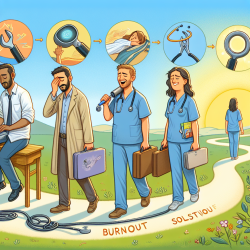In the realm of special education, the challenges of ensuring compliance, fostering collaboration among diverse stakeholders, and adapting to ever-changing educational needs are paramount. The research article "The Evolution of Polycentric Governance in the Galapagos Small-Scale Fishing Sector" offers valuable insights that can be applied to enhance practices within special education. This blog post explores how these insights can be utilized to improve collaboration and adaptive management in special education settings.
Understanding Polycentric Governance
Polycentric governance involves multiple overlapping authorities at different scales, which work collaboratively while maintaining a degree of autonomy. This approach is particularly effective in managing complex systems where diverse stakeholders are involved. In the context of the Galapagos small-scale fishing sector, polycentric governance has been instrumental in addressing socio-ecological challenges by fostering collaboration among various organizations and stakeholders.
Key Takeaways for Special Education
The principles of polycentric governance can be adapted to the field of special education in several ways:
- Fostering Collaboration: Just as in the Galapagos fishing sector, special education requires collaboration among multiple stakeholders including educators, therapists, parents, and administrators. Establishing networks that facilitate open communication and shared goals can enhance educational outcomes.
- Adaptive Management: The ability to adapt to changing needs is crucial. In special education, this means being responsive to new research findings, policy changes, and the unique needs of each student. By adopting an adaptive management approach, educators can ensure that they are meeting legal requirements while also providing the best possible support for students.
- Building Robust Networks: Creating strong networks among schools, districts, and external partners such as therapy providers can lead to more effective resource sharing and problem-solving. This mirrors the network configurations identified in the Galapagos study as essential for collaboration diffusion.
Implementing Collaborative Strategies
To implement these strategies effectively in a special education context, consider the following steps:
- Identify Key Stakeholders: Map out all relevant parties involved in the educational process including teachers, therapists, parents, and external agencies.
- Create Communication Channels: Establish regular meetings and communication platforms to facilitate ongoing dialogue and feedback among stakeholders.
- Encourage Cross-Sector Collaboration: Look beyond traditional educational boundaries to include healthcare providers, community organizations, and technology partners in your network.
- Utilize Data-Driven Decision Making: Leverage data from various sources to inform decision-making processes and adapt strategies as needed.
The Role of Leadership in Polycentric Systems
Leadership plays a critical role in facilitating polycentric governance. As a Special Education Director or school leader, your role involves guiding these collaborative efforts while ensuring legal compliance and advocating for necessary resources. By embracing a leadership style that encourages innovation and flexibility, you can create an environment where all stakeholders feel empowered to contribute toward shared goals.
The Importance of Continuous Learning
The concept of continuous learning is central to both polycentric governance and special education. Educators must remain open to new ideas and willing to adjust their approaches based on emerging evidence and changing circumstances. This commitment to learning ensures that educational practices remain relevant and effective over time.
Conclusion
The insights gained from studying polycentric governance systems like those in the Galapagos small-scale fishing sector offer valuable lessons for enhancing special education practices. By fostering collaboration, embracing adaptive management strategies, building robust networks, and maintaining a commitment to continuous learning, educators can improve outcomes for students with special needs.
To read the original research paper on which this discussion is based, please follow this link: The Evolution of Polycentric Governance in the Galapagos Small-Scale Fishing Sector.










